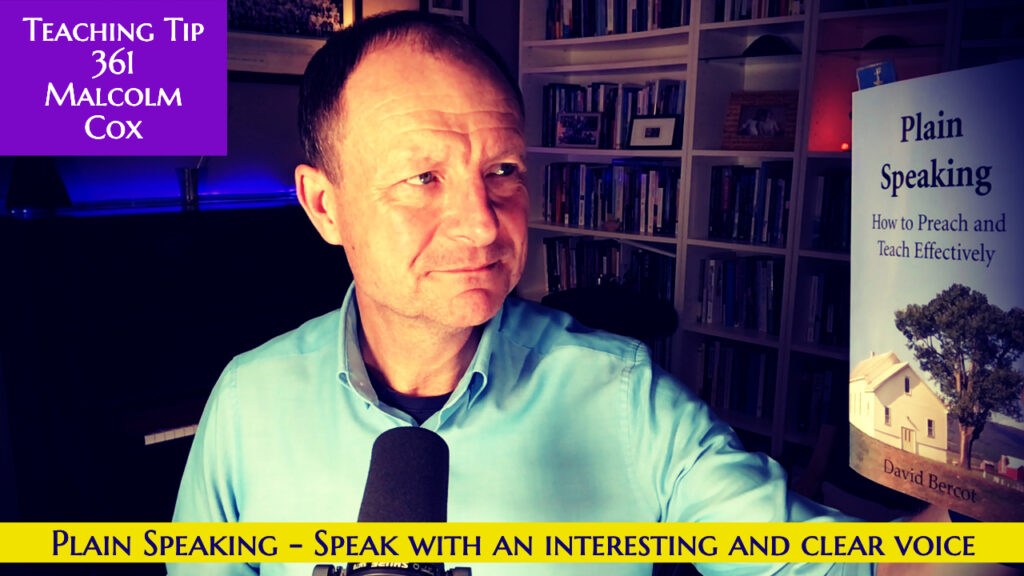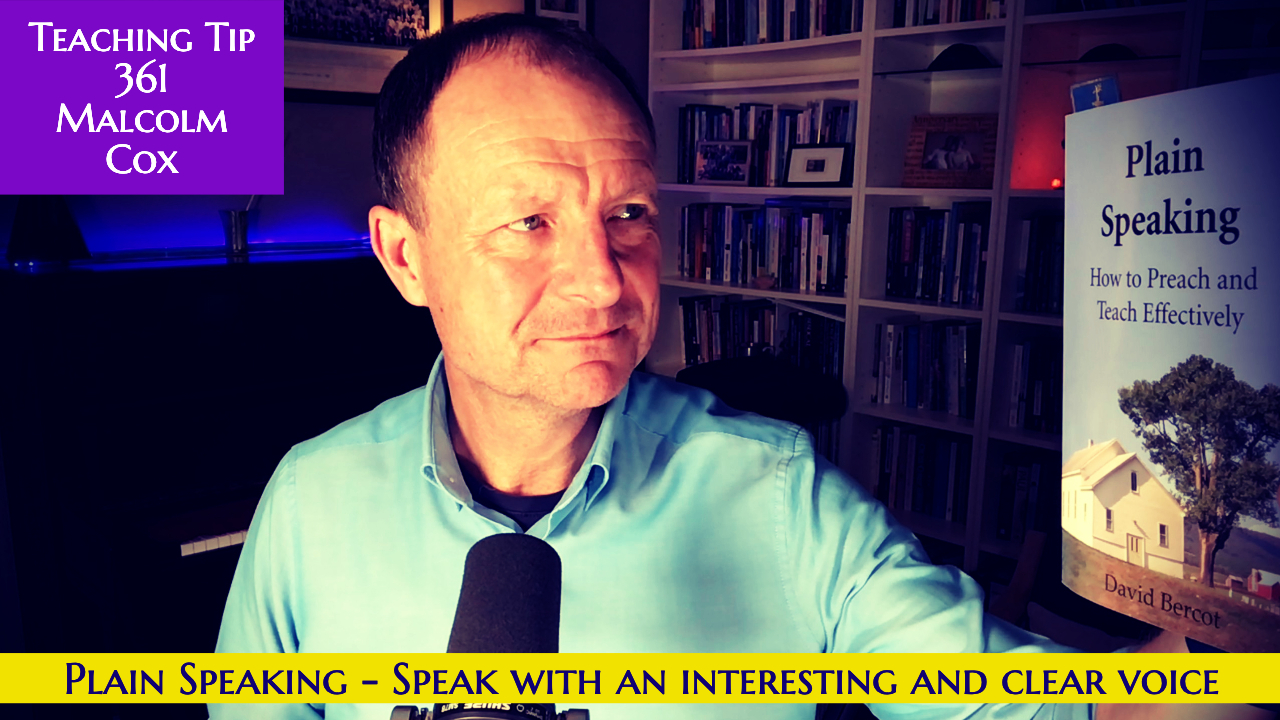
Teaching Tip 361 | “Plain Speaking – Speak With an Interesting and Clear Voice” | Malcolm Cox
Introduction
Here is your 2-minute tip based on the book, “Plain speaking: How to preach and teach effectively” by David Bercot.
It is crucial to know what we are talking about and present it with confidence and conviction. However, what difference does the quality of our voice make? Bercot makes this observation:
“In daily conversation, we seem naturally to know how to make our voice pleasant and interesting. We rarely speak in a monotone when talking to friends. but somehow when we’re in front of a congregation we forget to do what comes naturally. That’s why every speaker needs to consciously speak with modulation.” 85
What does this look like?
- Modulation. We’re talking about variety in pitch, volume, tone and emphasis. Read one of the parables. Can you imagine Jesus sharing it with no variation in his voice? A monotone? I hardly think so. Where do you think he might have placed emphasis—speaking louder, more softly or slowly? Take the parable of the Pharisee and the tax collector in Luke 18. I’m pretty sure he relayed the Pharisee’s prayer at high volume (“‘God, I thank you that I am not like other people—robbers, evildoers, adulterers—or even like this tax collector. I fast twice a week and give a tenth of all I get.’” (Luke 18:11-12 NIV11), and the tax collector’s at low volume (“‘God, have mercy on me, a sinner.’” (Luke 18:13 NIV11)
- Volume, Tempo, and Pausing. Can you be heard by everyone in the room? Look at the back as you start speaking and take note if it looks as if they are straining to hear you. The bigger the group and the larger the room, the slower we need to speak. Sound tends to get garbled the further it travels. Pauses help your audience ‘breathe’ as they listen. A small gap here and there in your lesson will help them to grasp your point. Use dramatic pauses sparingly but meaningfully. See the example of Jesus in Mark 3:1-6 and imagine the effect of the silence.
- Enunciation. I vividly remember the person who preached on the text, “Blessed are those who mourn, for they will be comforted.” (Matthew 5:4 NIV11) His accent was strong. It sounded like he was saying, “Blessed are those who moan”. Once would not have been too bothersome, but it was the main phrase of the lesson and repeated multiple times. The congregation did not know whether to ask him to speak more clearly, try to ignore it, or laugh. It was embarrassing, distracting and avoidable.
What are your thoughts on cultivating an interesting and clear voice?
Conclusion
Next time, we will go on to look at five things that can spoil an otherwise good sermon.
Has today’s tip been worth two minutes of your time? I hope so.
Remember to keep calm and carry on teaching.
Consider joining AIM UK&Ireland to develop your understanding of Scripture: https://aimukandireland.com/. Our next module is Spiritual Life.
Contact us here with enquiries: courses@aimukandireland.com
The website can be found here: https://aimukandireland.com
Please add your comments on this week’s topic. We learn best when we learn in community.
Do you have a question about teaching the Bible? Is it theological, technical, or practical? Send me your questions or suggestions. Here’s the email: malcolm@malcolmcox.org.
If you’d like a copy of my free eBook on spiritual disciplines, “How God grows His people”, sign up at my website: http://www.malcolmcox.org.
Please pass the link on, subscribe, and leave a review.
Remember to keep calm, and carry on teaching.
God bless, Malcolm




